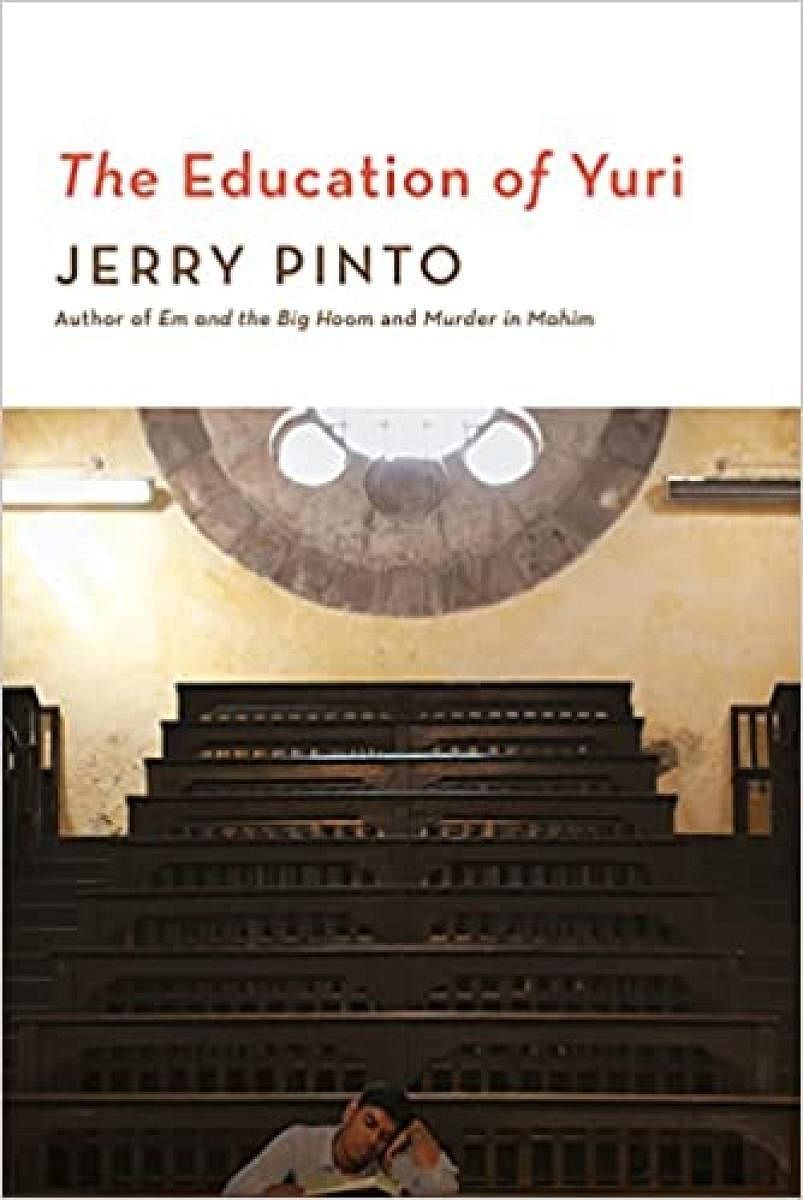
Jerry Pinto’s latest novel The Education of Yuri is a tender, coming-of-age story of a 15-year-old orphan Yuri Fonseca.
Right from page one, it sucks you into its richly constructed and generously populated world of the 1980s Mahim, where Yuri lives, along with his khadi-wearing catholic uncle, Julio, who had no choice but to be Yuri’s guardian after the death of his sister and brother-in-law in a road accident. While Yuri’s parents’ black-and-white wedding portrait hung in his bedroom is nothing but “static images emptied of life,” Tio Julio is a lifeline — a reality. For it’s his uncle who sacrificed his own dream and advised Yuri to “[g]et an education, get to know yourself and your world. Then do your best and things will fall into place.” With this uncomplicated expectation and adolescent naivete, Yuri begins to experience life — its many firsts and lasts.
It’s this “education”— both literally and as a metaphor — that propels this extremely accessible existential account of a young person’s growing up years while the world around him is stuck in contesting binaries of all kinds: rich-poor, socialism-capitalism, man-woman, etc.
The story is written in a manner that only a few can be, for not many novels deal with the question of your being and go deep into interrogating the everyday notions that seem so set and cemented that we rarely tend to dissect them for ourselves. While this may appear heavy-duty stuff in fiction, it is rendered in a style so Bambaiyya and refined that it makes you chuckle and think along the way.
Two of Yuri’s most precious discoveries, in my view, include his affection towards his Pedder Road (read: filthy rich) friend Muzammil and poetry. Both, in a way, help Yuri get to know himself. While for the former, he would gradually develop a vocabulary and come to terms that it’s also love, the latter becomes a part and parcel of his life. Sample this: “And then, as he began to read more poetry, furtively at first and then with enjoyment, came the feeling that he might want to write it. With that came the horrible emptiness of wanting to write and having nothing to say.”
The classroom set-up
While the protagonist’s readerly and writerly life are interesting to read, the book is unique for it weaves existentialist quests in young adult fiction so precisely that the text isn’t overburdened by the politics of its characters. And there are plenty of them and they all have a role to play. Their idiosyncrasy and charm in facilitating and resolving several conflicts justify the diverse cast Pinto has packed in this volume. Arif is a case in point, as he explains to his teacher how an educational degree has a situational utility just like the matchbox he carries around in case a smoker needs it.
It’s interesting that Pinto uses the classroom setup for several philosophical and feminist renderings, for that’s the place where something breaks in all of us—if we’re fortunate to be admitted into a place like a college. It’s where we learn that whatever we have learnt must be unlearnt, and with a newer, vague, and slippery understanding we happen to negotiate with the world, often making mistakes, a few times getting lucky, and a couple of times risking everything for a cause, which Yuri also does by almost becoming a Naxalite.
Fragment of a poem
It’s Pinto’s sheer craft that makes you feel Yuri’s existential crisis has become yours, and without your knowing you become both an active participant and voyeur at once, with an equal degree of attachment and distance, and your heart goes out to Yuri, who sometimes behaves like a typical ‘man’ unable to process his emotions. In a way, he’s like an unrefined fragment of a poem.
Famous poets like Nissim Ezekiel, Adil Jussawalla, and Eunice de Souza become part of the narrative. And so does a masseur, who plays an extremely important role, providing closure to the narrative and helping Yuri learn the meaning of the word ‘freedom’. Reading those portions reminded me of John Burbidge’s The Boatman: A Memoir of Same-Sex Love, in which the experiences with such masseurs in the 80s Bombay, with whom many locals and foreigners had had homosocial encounters, are vividly described. Despite that, I am sure it’d be difficult to claim this as a ‘queer book’. In a way, Pinto’s book is a testament to what Nissim says in a class in this book: “Poetry does not have to deal with literal truth; it must deal with [a] higher truth.”